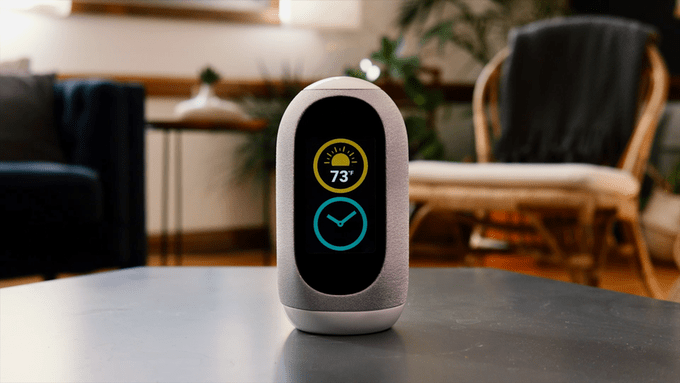
“All I had to do was fire up the little hexapod robot and make it walk and dance, and people were instantly hooked.” – Vorpal Robotics founder Steve Pendergrast
Open Source Startup Mycroft is Taking on Amazon Alexa
Digital assistants like Amazon Alexa and Google Home exploded in popularity this year, with a new report estimating that 35.6 million Americans now use smart speakers. But the devices’ algorithms tend to be black boxes, and that lack of transparency has drawn criticism from privacy advocates.
Maybe that’s why Mycroft (@mycroft_ai), an open source smart speaker that aims to recreate much of the functionality of those smart speakers, crushed itsKickstarter goal last week by raising $394,000 out of a modest $50,000 goal.
Mycroft embodies the maker pro ethos. The software is available for free for anyone who wants to hack together their own on a Raspberry Pi, Androidphone, or desktop computer. Like Alexa, you can extend its capabilities with community-created “skills.” Last year, to test the water and build out the system’s capabilities, the company released the Mark I, a hacker-oriented device for early adopters. Now, using the crowdsourced funds, it’s working to deliver the Mark II, an elegant white speaker with array microphones and beamforming, aimed at everyday users — the same target, notably, as its competitors in big tech.
The smart speaker market is ripe with potential for maker pros. At the end of the day, what they do isn’t devastatingly complex: it requires solid speech recognition, rudimentary artificial intelligence, and an active, engaged community — assets the maker community has in spades.
Helping Maker Pros Launch Businesses
European education program Makerversity (@makerversity), with locations in London and Amsterdam, aims to be a “pioneering community of Maker businesses.” Its inaugural program is called U25, a three-month residency for young makers who want to launch creative businesses.
A new feature by Make: contributor Liam Grace-Flood looks at alums of U25, as well as the group’s followup residency program, Makers with a Mission, which is open to value-driven projects including Petit Pli (@PetitPli), which makes clothing that grows along with children, and Chip[s] Board(@Chips_Board), which creates materials from potato waste.
Spotify is Exploring a Hardware Launch
In a new job listing, streaming giant Spotify (@Spotify) is looking to hire maker pros to explore a move into the hardware market. This comes after a report last year that the company was considering products akin to Pebble (@Pebble) or Snap Spectacles (@Snap) — a device, reading between the lines, that combines a music listening device with something high-concept and original.
“Spotify is on its way to creating its first physical products and setting up an operational organization for manufacturing, supply chain, sales & marketing,” reads the position description.
This Adorable Dancing Robot is Blowing Up
Maker pro startup Vorpal Robotics (@VorpalRobotics) is making waves with a 3D-printable hexapod that can be programmed in Scratch to fight, walk, and bust sick dance moves. The company sells the kit in versions that need to be 3D printed, that are already fabricated, and even a pre-assembled model — an impressive example of a crowdfunding campaign that not only raised its funds but delivered an irresistibly cute and accessible product.
“When I first started demonstrating a prototype of this project over a year ago, I never saw such a reaction to any robotic display,” founder Steve Pendergrasttold 3Ders. “Adults, teenagers, toddlers, it didn’t matter. All I had to do was fire up the little hexapod robot and make it walk and dance, and people were instantly hooked — they wanted to know more.”
Elsewhere on the Maker Pro Web
In a terrific new post, 3D Innovations (@3D_Innovations) rounds up seven posts with crucial information for anyone looking to launch a hardware startup with minimal pain — from avoiding common traps to navigating the complex worlds of intellectual property and manufacturing.
YouTube duo Evan and Katelyn (@EvanAndKatelyn) visited Crafted Workshop (@craftedworkshop) in a new video to learn how to create a flat pack table. But this is no Ikea kit — the result is a resplendent mid century coffee table, created with a CNC machine, that can be shipped in a small package.
Coder Marcel Urbanek has created a new 3D modeling system called PlastiSketch. Instead of working like a standard “sculpting” system, PlastiSketch works by interpolating vector graphics into a 3D object. You can try it out here.
Sometimes, solving a long-standing problem simply requires a new approach. Take SpinLaunch, a would-be SpaceX (@SpaceX) competitor that’s working on a centrifuge that could shoot payloads into space at incredible speeds — obviating the need for fuel to reach orbit.
ADVERTISEMENT





